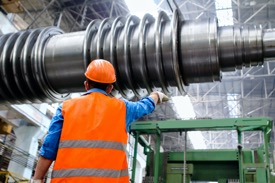India, with its vast population, abundant resources, and skilled workforce, is rapidly emerging as the world’s factory. As global supply chains undergo transformation, the country is positioning itself as a preferred manufacturing destination, presenting immense opportunities for economic growth and development.
India’s journey towards becoming the world’s factory is driven by several factors. First and foremost is its demographic advantage. With a young and dynamic workforce, India possesses a valuable asset that can fuel industrial production and innovation. The government’s focus on skill development and vocational training programs further enhances the capabilities of this workforce, making it attractive to domestic and international investors.
Another catalyst is India’s increasing ease of doing business. Reforms in labor laws, taxation, and regulatory frameworks have created a business-friendly environment, streamlining processes and reducing bureaucratic hurdles. Initiatives like “Make in India” have successfully attracted foreign direct investment, encouraging global companies to establish manufacturing facilities within the country.
Additionally, India’s robust infrastructure development is instrumental in supporting its manufacturing ambitions. Investment in transportation networks, logistics, and industrial corridors has improved connectivity and reduced logistical costs, making India an efficient hub for production and distribution.
Furthermore, India’s burgeoning middle class presents a significant consumer market. This domestic demand, coupled with a growing appetite for quality products, fuels the need for localized manufacturing. Many global companies are recognizing the potential of serving the Indian market from within the country, leading to increased investments in manufacturing facilities.
India’s strengths in sectors such as automotive, electronics, pharmaceuticals, textiles, and renewable energy further solidify its position as a manufacturing powerhouse. The availability of raw materials, skilled labor, and a robust ecosystem of suppliers and service providers contribute to the competitiveness of Indian industries on a global scale.
However, challenges remain on the path to becoming the world’s factory. Infrastructure gaps, skill mismatches, and bureaucratic complexities require continuous attention. The government’s commitment to addressing these challenges through initiatives like “Atmanirbhar Bharat” (Self-reliant India) and investment in technology and innovation will be crucial in sustaining India’s manufacturing growth.
As India forges ahead on its journey to become the world’s factory, it presents immense opportunities for job creation, economic development, and technological advancements. The convergence of factors like a skilled workforce, favorable business environment, and robust infrastructure makes India an attractive manufacturing destination. The world is witnessing India’s rise as a global manufacturing hub, and as the country continues to build upon its strengths, it is poised to redefine the future of global manufacturing.


No Comments
On the other hand, we denounce with righteous indignation dislike men which toil and some great pleasure.
On the other hand, we denounce with righteous indignation dislike men which toil and some great pleasure.
On the other hand, we denounce with righteous indignation dislike men which toil and some great pleasure.